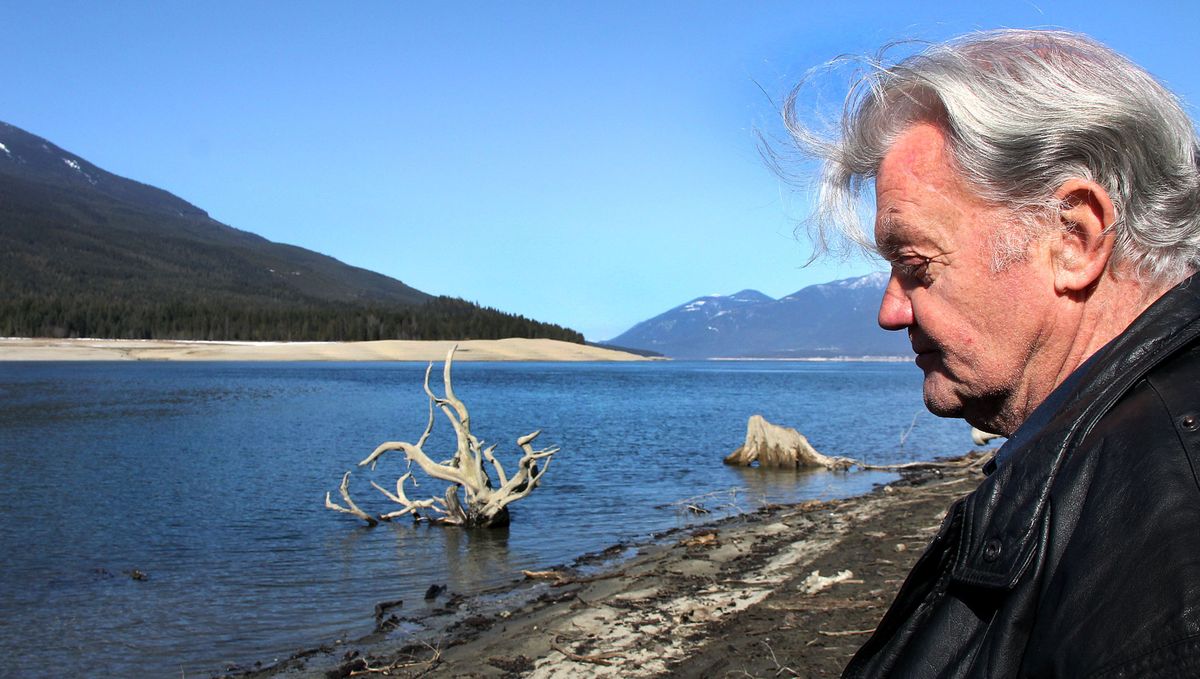Residents say Columbia’s dams have affected area families, economy

On a crisp day in March, Charlie Maxfield walked the along the mudflats south of Nakusp, remembering places that were flooded when the reservoir behind Hugh Keenleyside Dam filled.
Maxfield’s father was a country doctor who made house calls in the communities up and down the river. As a youngster, Maxfield often accompanied him to the small farms, orchards and woodlots. Through the 1960s, it wasn’t unusual to see a bunch of barefoot kids scamper out of the house, the girls in flour-sack dresses.
“Doc, I can’t pay you, but I just butchered a cow,” Maxfield recalls farmers telling his dad. “When we unpacked the trunk, there would be half a sack of potatoes, a box of apples, and maybe a fish or two wrapped up in oil cloth.”
It galls him to see sterile mudflats in place of productive land.
“The Americans have access to a lot of the downstream benefits from the Canadian dams,” he said. “We’re basically holding tanks.”
Family went ‘with the flow’
Brian Gadbout, 63, grew up at Revelstoke, a Columbia River town north of Nakusp. When part of his family’s 10 acres was condemned, his parents received $20 per acre. “My dad went with the flow. We didn’t have a lot of money to hire lawyers to negotiate a better deal,” Gadbout said.
Some of their neighbors were Ukrainian immigrants. They were devastated.
“People had heart attacks. The men just couldn’t cope,” Gadbout said. “Ten acres was security. It meant you could grow enough food to feed your family.”
Gadbout later went to work for BC Hydro as a biologist. With a scientist’s trained eye, he assesses changes to the upper Columbia River: the loss of productive wildlife habitat in valley bottoms, and the creeks that no longer provide spawning for fish because water levels are too high at the wrong times. But Gadbout can’t imagine a different outcome.
“We have steep mountains, big snowpacks and lots of runoff. It’s ideal for power production,” he said. “If it didn’t happen, where would we get our electricity? We’d be running huge coal plants.”